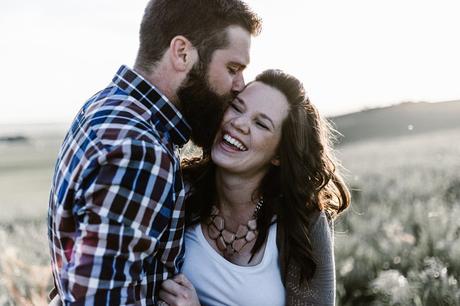To many people out there, the secret to a good relationship might seem unattainable. That said, it really isn’t a labyrinth to explore or a treasure chest to unlock. The pillar of any good relationship is communication.
Communicating is not always an easy skill to master. For some, hiding away from your feelings might be the best way you cope. However, when another person’s feelings are in the picture, a different approach must be taken so you don’t have to resort to getting family law legal advice.
If you’re concerned that your relationship is falling apart, perhaps your missing this key cornerstone of any solid romance. Want to discover more about why communication is the key to a good relationship, and how to do so effectively? Well, you came to the right place…

Types of Communication
Before we delve into the best ways to communicate in order to avoid the divorce lawyer, let’s first get acquainted with the different types of communication.
Listening
Communicating in relationships begins with listening. But that doesn’t mean hearing what your other half is saying, whilst you fidget, do the chores, or stare at the TV screen. Instead, here are some top tips which can help you to practice good listening:
· Don’t fiddle or fidget with anything. · Maintain eye contact throughout, which can be achieved by remaining at the same level - either sitting or standing - and facing each other. · Don’t walk around and do other activities; sit down with the person, so they know they have your full attention. · Reply with questions which prompt further understanding of what’s being said. · Use appropriate non-verbal communication to show you’re listening, including nodding, and relevant facial expressions. · Minimise interruptions by muting the television, or turning your phones on silent.
By ensuring to do all of the above, this will help to assert that you’re showing genuine interest throughout. By listening effectively, you’ll be able to react accordingly, and maybe you’ll learn something new along the way!
Verbal Communication
This type of communication is pretty straightforward, and involves using words and sounds to express yourself. So, forget hand gestures and facial expressions; it’s all about what the other person is saying. Think Netflix’s Love is Blind, where they talk to each other through a wall; if you know, you know.
Non-Verbal Communication
Another means for communicating information is non-verbal communication, which is all about gestures and facial expressions. Even giving someone the silent treatment and ignoring them altogether is a form of communication in itself.That said, this type of behaviour, if practiced repeatedly, is often seen as part of a controlling or coercive relationship. So, in the interest of ensuring that you’re maintaining a healthy and loving relationship, combining verbal and non-verbal communication is key.

Collaborative Communication
Our final type of communication is collaborative, which is – you guessed it – equal conversations. You might be thinking that participating in a conversation is simple, however, many people make the mistake of simply waiting for their turn to talk. That said, conversing with someone isn’t all about what you can give, but what you can get too.
The aim of collaborative communication is to ensure everyone within the conversation matters. They’re all listened to in equal measure, and contribute to the talking in equal measure as well. This sort of communication, like listening, is the pillar to any good relationship.
Why is Communicating so Important in a Relationship?
Communicating effectively not only helps you to understand how one another feels about certain things. It also has the power to heal, and the power to build trust. By helping you to avoid misunderstandings, you’ll be able to quash arguments before they even begin.What’s more, by expressing your thoughts and feelings, you may even learn something about yourself along the way. Then, by understanding how you feel about something more, you’ll be able to learn about the ways you can compromise with one another.
A Working Example of Where Communication Works:
Say one of you has a problem about something the other person does. Be it not cleaning up after themselves, talking to other girls via messenger, or liking other boys’ gym pictures. You can’t expect the other person to read your mind; don’t assume they see these things as wrong.By talking about your feelings towards these actions, the other person can ask any questions they have, and learn to understand you better. This way, not only can the problems be addressed, and efforts made to fix it, but you can learn more about your relationship in the process.

Top Tips for Communicating Effectively
So, how can we communicate to ensure we’re listening, reacting, and talking to each other in the most effective way possible? Some top tips are as follows:
· Say ‘I feel…’ instead of ‘you are…’: this way, the other person won’t be able to get defensive, as they can’t dispute your feelings, and won’t feel attacked. · Be as clear as possible: try and explain your thoughts in detail so that you avoid misunderstanding each other. · Try and think about what you want to say before you say it: this can help to avoid any nasty remarks or comments which could upset the other person. Perhaps even write your thoughts down beforehand to collect your ideas together to avoid this. · Ask each other about how your day was: something as simple as this can invoke a conversation about a funny event that occurred, or a person they’re friends with. This way, you can learn more about one another’s lives outside of each other. · Accept responsibility where it’s due: this way, you can apologize for what you’ve done, and take actions to avoid it in future. · Talk face-to-face: avoid messaging one another with your problems, as tone of voice can’t be read through this. · Listen: we’ve already discussed the importance of listening, and it really is paramount for communicating well. This way, you can learn to understand the other person’s feelings and wants, so you can address them accordingly. · Adjust your tone of voice: if you feel as though you might be speaking too abruptly or harshly, change it up to avoid hurting anyone’s feelings. · Don’t just share the negatives: by exploring how you’re feeling in a positive sense, and not just communicating the bad stuff, you’ll ignite positivity all-round. · Body language is key: as we mentioned above, making sure your non-verbal communication is appropriate is very important. Don’t give the silent treatment, don’t roll your eyes, don’t fold your arms; be as open as possible. · Avoid being nasty: this comes with the language you use, your tone of voice, and your body language. · Timing is everything: by ensuring you time your conversation well, when distractions aren’t available and the mood is good, you should avoid any unnecessary conflicts. · Honesty is the best policy: don’t hide away anything, as this can affect the trust between you. By laying all your cards on the table, nothing can be misunderstood in the process. · Forgive: this obviously applies within reason, but it’s paramount that you understand that no one is perfect all the time. Acknowledge that you’re both human, you make mistakes, and that, if you’re willing to try, you can get through anything.

Need More Help in Understanding Relationships?
See! Communicating effectively doesn’t have to be difficult. It all starts with listening attentively, and the rest should follow suit.
If, after this, you still feel as though you need help with your relationship, there are a number of avenues you can take before getting a family law solicitor involved. Research your problems online, talk to a therapist, and talk to each other as much as you can.
If you have any more relationships advice with regards to communication, I’d love to hear it in the comments below. None of us are experts, and we’re all just doing our best, but every little helps, after all! I’m sure we can exchange thoughts and ideas to come to the aid of at least someone out there…
If you enjoy my blog, please consider following me on Bloglovin'
